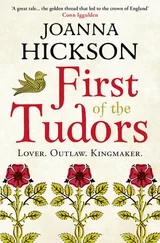Richard Bagwell - Ireland under the Tudors. Volume 3 (of 3)
Здесь есть возможность читать онлайн «Richard Bagwell - Ireland under the Tudors. Volume 3 (of 3)» — ознакомительный отрывок электронной книги совершенно бесплатно, а после прочтения отрывка купить полную версию. В некоторых случаях можно слушать аудио, скачать через торрент в формате fb2 и присутствует краткое содержание. Жанр: foreign_antique, foreign_prose, на английском языке. Описание произведения, (предисловие) а так же отзывы посетителей доступны на портале библиотеки ЛибКат.
- Название:Ireland under the Tudors. Volume 3 (of 3)
- Автор:
- Жанр:
- Год:неизвестен
- ISBN:нет данных
- Рейтинг книги:3 / 5. Голосов: 1
-
Избранное:Добавить в избранное
- Отзывы:
-
Ваша оценка:
- 60
- 1
- 2
- 3
- 4
- 5
Ireland under the Tudors. Volume 3 (of 3): краткое содержание, описание и аннотация
Предлагаем к чтению аннотацию, описание, краткое содержание или предисловие (зависит от того, что написал сам автор книги «Ireland under the Tudors. Volume 3 (of 3)»). Если вы не нашли необходимую информацию о книге — напишите в комментариях, мы постараемся отыскать её.
Ireland under the Tudors. Volume 3 (of 3) — читать онлайн ознакомительный отрывок
Ниже представлен текст книги, разбитый по страницам. Система сохранения места последней прочитанной страницы, позволяет с удобством читать онлайн бесплатно книгу «Ireland under the Tudors. Volume 3 (of 3)», без необходимости каждый раз заново искать на чём Вы остановились. Поставьте закладку, и сможете в любой момент перейти на страницу, на которой закончили чтение.
Интервал:
Закладка:
All important persons who sued for mercy were first required to imbrue their hands in some better blood than their own, and special services in proportion to their rank were required of leading rebels. Rory MacSheehy, a noted captain of the Desmond gallowglasses, was given to understand that he could have a pardon if he gave up Sanders alive. Sir John of Desmond sought to confer with St. Leger; he was told that he could have his own life by giving up his eldest brother, Dr. Sanders, and the seneschal of Imokilly. Sanders himself might perhaps be spared, if he would lay bare the whole network of foreign intrigue. The detained magnates were let loose one by one as they seemed likely to do service. Sir Cormac MacTeige MacCarthy was sheriff of Cork; he made humble submission, confessed his negligence, took a new oath, and departed with 150 English soldiers under Captain Apsley and Captain Dering. Soon afterwards Sir James of Desmond entered Muskerry and collected 2,000 of Sir Cormac’s cattle, which he proposed to drive off into the mountains west of Macroon. The sheriff came up with him, and a skirmish followed, in which Sir James was wounded and taken. He was carried from Carrigadrohid to Blarney and thence to Cork, where he was tried and condemned, having in vain begged for summary decapitation to avoid a public trial. After two months, during which he gave earnest attention to religious subjects, he was hanged, drawn, and quartered, or as the Four Masters say, cut into little pieces, dying a fervent Catholic and, as his enemies allowed, ‘a yielding to Godward a better end than otherwise he would have done if he had not died the death.’ ‘And thus,’ says Hooker, ‘the pestilent hydra hath lost another of his heads.’ 47 47 Pelham to Lord Fitzmaurice, July 27, 1580; to St. Leger, Aug. 15; the Estate wherein Pelham left Munster, Aug. 28: these three in Carew . St. Leger and P. Grant to Ormonde, Aug. 6; St. Leger to Burghley, Oct 9.
Lord Fitzmaurice was at liberty, but his two sons were detained at Limerick, and he was told that he could only make his peace by intercepting Desmond or the Seneschal, or at the very least by procuring the release of Sir James Fitzgerald, of Decies, who was imprisoned in Kerry by the rebels. Sir Owen O’Sullivan Bere it was thought safe to keep at Limerick; but his neighbour Sir Owen MacCarthy Reagh was released, his tanist Donell na Pipy being retained as a hostage. Clancare had been protected by Ormonde, and the engagement was kept, but he was required to leave his son, Lord Valentia, in pledge. Lord Barrymore remained contumacious, and was sent to Dublin Castle, his sons being encouraged to come in under protection, but St. Leger was told to keep them safe until they offered good security. Sir Warham, who was always for harsh courses, advised that the father should be executed and his estate confiscated. The example, he thought, would be salutary, and the land would pay the whole cost of the war. 48 48 Pelham to Burghley, July 15, 1580; to St. Leger, Aug. 26; the latter in Carew . State in which Pelham left Ireland, Aug. 28, in Carew . St. Leger to Burghley, July 15.
In the meantime the garrisons were busy. Sir George Bourchier was near taking a rich prize at Kilmallock. During a night foray, the soldiers fell in accidentally with Sanders and John of Desmond. Sir John was wounded, and both he and Sanders were over an hour in company with the soldiers, whose suspicions they disarmed by exhorting them, in English, to slay the Irish. An Englishman in Sanders’ service was taken and killed by the soldiers, because he would confess nothing. James O’Hea, a friar of Youghal, was made prisoner, and gave important information.
A division of opinion had arisen between Desmond on the one hand, and his brother Sanders on the other. The Earl was inclined to sue for peace, but the others were determined to fight it out to the last. Finding themselves straitened in Kerry, they made their way to Leinster, where Baltinglas eagerly expected them. With about five-and-twenty followers, they passed through the glen of Aherlow, and crossed North Tipperary into the Queen’s County, where they were helped by the remnant of the O’Mores, and by the veteran Piers Grace, until they joined the O’Byrnes near the border of Wicklow. They had an escape on the road, which Pelham called strange, and which a Catholic writer evidently thought miraculous. They met Ormonde – or more probably one of his brothers – who called out that they were in the net. ‘A sudden tempest,’ we are told, ‘arose on a fine day – whether at the Doctor’s prayers, or not, God knows – and the rain was so thick that the Earl, with the ministers of Satan, could not advance against the Catholics, nor even hold up their heads for a whole hour.’ The fugitives, who had the wind at their backs, threw away all superfluous weight, and escaped. Having lost their best leader, the Munster rebels sought terms for themselves. Baltinglas summoned Desmond himself to join him, for defence of the Catholic faith, but the Earl’s people said they were starving, and could endure no longer war; and they openly reviled Sanders as the cause of all their misery. 49 49 Paper by J. Holing, S.J., in Spicilegium Ossoriense , i. 94. Pelham to Bourchier, Aug. 5, 1580; to the Queen, Aug. 12; to Winter, Aug. 16; State in which Pelham left Ireland, Aug. 28; all in Carew . G. Fenton to Burghley and Leicester, Aug. 8; Wallop to Walsingham, Aug. 9.
Wearied by want of bread and all comforts, the rebel Earl began to feel that the game was up, and he besought Winter to give him a passage to England. Pelham did not object, provided the surrender was unconditional; but would allow no agents to pass, nor the Countess to go over without her husband. The poor lady’s tears showed him that her cause was desperate. Chief Secretary Fenton was principally struck by her impudence in venturing to defend her husband’s conduct. Pelham was inclined to believe that they both meant nothing but villainy, and were only seeking time to get in the harvest, and he directed Bourchier at Kilmallock, and Case at Askeaton, to give the fugitive Earl no rest for the sole of his foot. The hunted wretch might have surrendered to Winter had it not been for the change of government, which, both before and since, in Ireland, has often been wrongly supposed to denote a change of policy. He had perhaps been told that Grey’s orders from the Queen were to treat him leniently. At all events he changed his tone, though he had but 120 gallowglasses with him. These men clamoured loudly and vainly for their quarter’s pay, and the camp was followed by a horde of poor starving creatures, who begged such scraps as unpaid soldiers could give. In spite of all this, Desmond now declared that he would yield to Grey only, for that he remembered former hard treatment in England, and doubted that it would be worse than ever. And so the matter stood when Pelham, who had himself desired to be relieved, received the order to go to Dublin, and there surrender the sword to his successor. He had declared himself willing to serve under the new governor in Munster, with or without the title of Lord President, and the latter was directed to take advantage of his zeal, his experience, and his martial skill. As it was, he left Ireland on the nominal ground of health, perhaps because he could not get on with Grey, or because the Queen was frightened at the expense. He afterwards found work in the Netherlands, and Bourchier was left in charge of Munster with the rank of Colonel, Ormonde having enough to do in defending his own country against the Leinster insurgents. 50 50 Pelham to Winter, Aug. 24, 1580; Winter to Pelham, Aug. 24; Directions to Sir G. Bourchier, Aug. 28: all in Carew . Gerard, White, M.R., and Wallop to Burghley, Oct. 7; Wallop to Walsingham, Sept. 28; Grey to the Queen, Oct. 5. Grey landed Aug. 12, and was sworn in Sept. 7.
Интервал:
Закладка:
Похожие книги на «Ireland under the Tudors. Volume 3 (of 3)»
Представляем Вашему вниманию похожие книги на «Ireland under the Tudors. Volume 3 (of 3)» списком для выбора. Мы отобрали схожую по названию и смыслу литературу в надежде предоставить читателям больше вариантов отыскать новые, интересные, ещё непрочитанные произведения.
Обсуждение, отзывы о книге «Ireland under the Tudors. Volume 3 (of 3)» и просто собственные мнения читателей. Оставьте ваши комментарии, напишите, что Вы думаете о произведении, его смысле или главных героях. Укажите что конкретно понравилось, а что нет, и почему Вы так считаете.












